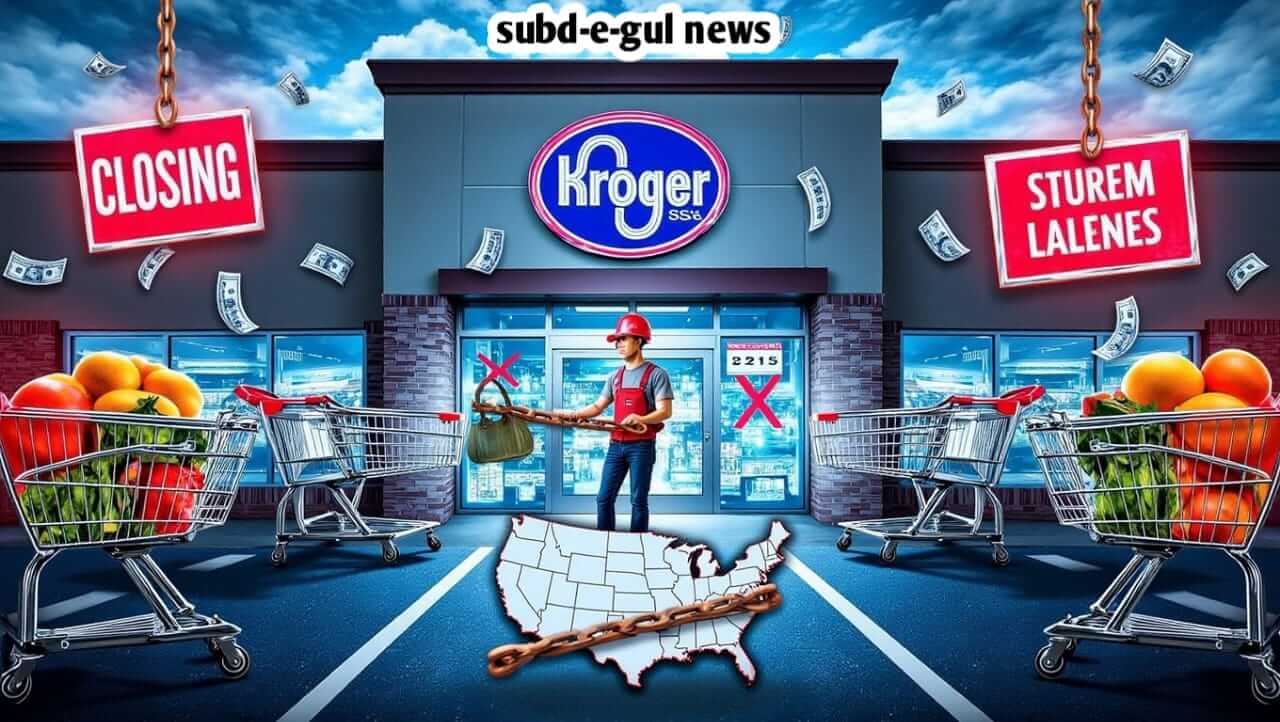Kroger Announces Major Store Closures
Kroger, one of America’s biggest grocery chains, just shared big news. They plan to close 60 stores across the country over the next year and a half. That means by late 2026, more than 60 locations will shut their doors. This move is part of a company plan to focus on stores that are doing well and serving communities better.
Where Are Kroger Stores Closing?
You might be wondering, “Is Kroger closing near me?” Right now, Kroger hasn’t shared the full list of Kroger stores closing in 2024 and 2025. But they did say closures will happen in areas where stores aren’t busy enough or where rent is too high. People on Reddit and local news sites are already guessing which locations might close. Kroger promises to update customers and workers at least 3 months before any shutdown.
Why Close Stores Now?
Kroger explained three key reasons:
- Saving Money: Running slow stores costs a lot. Closing them lets Kroger spend money on busier spots.
- Competition: Stores like Walmart and Aldi are growing fast. Kroger needs to stay strong.
- Online Shift: More people order groceries online now. Kroger is putting money into delivery and pickup instead.
What Happens to Workers?
If your local Kroger closes, don’t panic! The company says most employees will move to nearby Kroger stores. They’re also offering extra training for Kroger careers in growing areas like pharmacy, delivery, and tech. Union leaders are watching closely to make sure workers get fair treatment during this change.
Shopper Impact: Fewer Choices?
For shoppers, this could mean longer drives if your neighborhood store closes. But Kroger says they’ll boost services at nearby locations:
- More staff to reduce checkout lines
- Better fresh food sections
- Faster pickup for online orders
Community food banks worry though. In small towns, a closing Kroger might leave families without good grocery options.
The Merger Mystery
You’ve probably heard: Kroger plans to merge with Albertsons (which owns Safeway). This $25 billion deal is still waiting for government approval. If it happens, Kroger might close even more stores to avoid overlap. But CEO Rodney McMullen promises lower prices and more choices if the merger goes through.
Kroger vs. Walmart: Who’s Bigger?
Is Kroger bigger than Walmart? Not quite! Walmart still sells the most groceries in the U.S. But Kroger is #2 – and this shake-up aims to help it compete better.
Looking Ahead
These closures are tough for some towns, but Kroger insists it’s planning for the future. They’re opening new “automated warehouses” to fill online orders faster and testing smart shopping carts in Ohio stores. As one industry expert said: “This isn’t about giving up. It’s about staying relevant in a changing world.”
Frequently Asked Questions
Why is Kroger selling their stores?
Kroger isn’t selling they’re closing underperforming stores to save money and focus on busier locations.
What is the Kroger strike about?
Recent strikes involved workers wanting better pay and health care. These were separate from the closure plans.
Is Kroger a German-owned company?
No! Kroger is 100% American. It started in Cincinnati in 1883.
Who owns Kroger now?
Kroger is a public company owned by shareholders. The CEO is Rodney McMullen.
Why did workers strike?
Past strikes happened when workers felt wages weren’t keeping up with rising living costs.
How many stores will close exactly?
Kroger confirmed “more than 60” will shut by late 2026. Exact locations are still unknown.
Will there be more closures after the Albertsons merger?
Likely yes. Regulators estimate 400 stores might close if the merger happens to avoid duplicate locations.
What should I do if my Kroger closes?
Kroger will suggest nearby stores or pickup hubs. You can also check their website for updates using your zip code.
Can I still apply for Kroger jobs?
Yes! Kroger careers are still open, especially in e-commerce and pharmacy roles.
How do I know if my store is closing?
Kroger will alert customers via signs in stores, emails, and local news announcements at least 90 days ahead.
About the Author: Jane Miller is a food business reporter with 10 years of experience. She’s interviewed Kroger executives, store managers, and union leaders to explain this story fairly. Sources include Kroger’s official reports, United Food Workers Union statements, and retail expert analysis.



